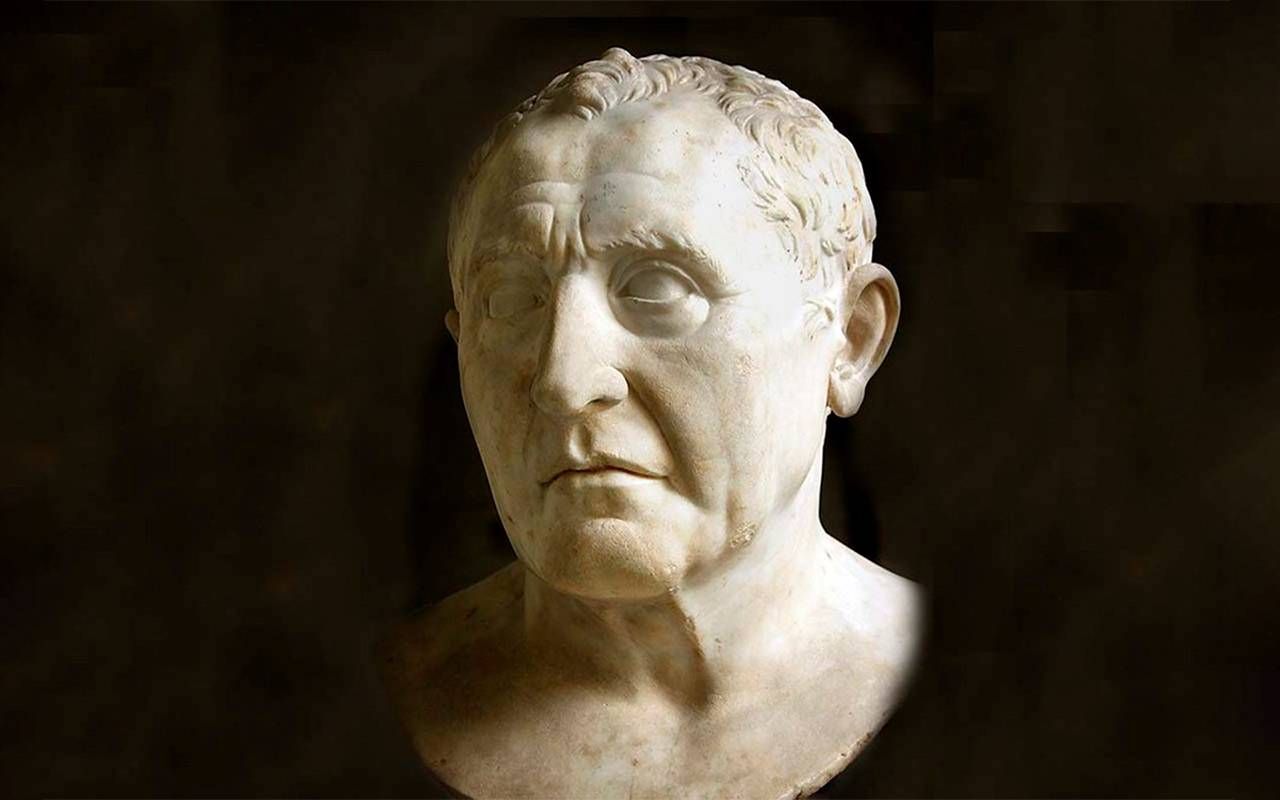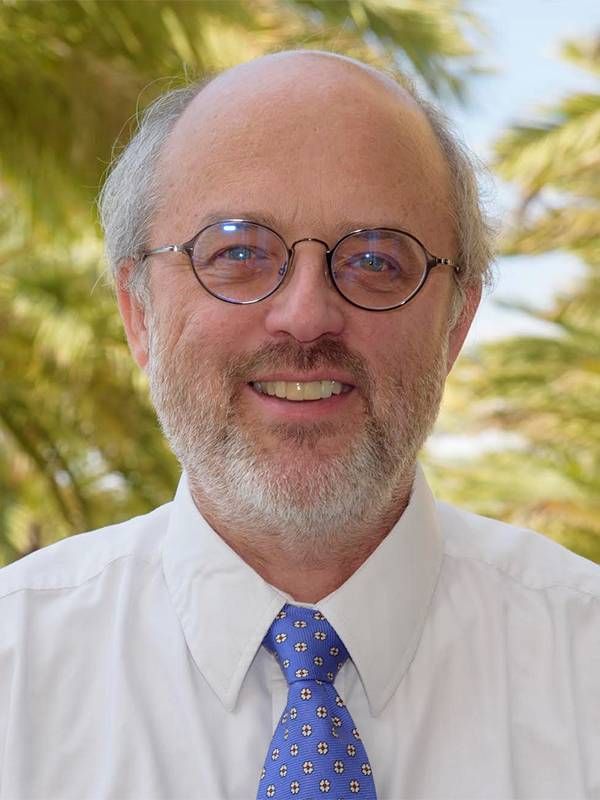How to Grow Old? Cicero Has Some Sage Advice
The professor who translated the Roman orator’s book explains why its guidance is relevant 2,000+ years on
You might not think that Cicero, the Roman philosopher and statesman who died in 43 BC, would have anything useful to tell us about growing old in 2022. Turns out, he does.

The pearls of wisdom from Marcus Tullius Cicero, described below, shine in his slim book, "How to Grow Old," (about 90 pages in English, plus another 90 in Latin). It's been translated by Pepperdine University classics professor Philip Freeman.
"We have to accept the fact that we are going to grow older and die someday."
Cicero is "taking all these different ideas from Plato and Aristotle and lots of different people and presenting it to a Roman audience," says Freeman. "And the ideas he presents, of course, aren't just for Romans. They're really timeless."
Cicero wrote "How to Grow Old" at 62, about a year before he was beheaded on orders of Mark Antony. It's written as a fictional dialogue between the Roman leader Cato, 84, and two men in their 30s asking for his advice on growing older.
I talked with Freeman, 61, about what we can learn from Cicero about aging well. Highlights of our conversation:
Next Avenue: 'How to Grow Old' is a small book, but Cicero packs a lot into 90 pages.
Philip Freeman: He does. It's a summary of an awful lot of wisdom from an awful lot of sources with his own particular twist. A lot of it is based on his own life.
Ben Franklin was such a fan of this book, he printed a translation in 1744, which was one of the earliest classical works published in America.
In the 18th century, there were a lot of people reading Cicero in America, England and France. Ben Franklin had one of the few printing presses in Philadelphia, so he jumped on this.
You wrote in the book that today's world needs Cicero's wisdom about aging more than ever. Why?
I spend half my time out in Malibu, California [home of Pepperdine] and you see a lot of people there trying to avoid growing older through surgical means, through you name it. The bottom line is: It just doesn't work.
"If you could make it into your 50s, you stood a pretty good chance of living to be 60, 70, maybe 80."
We have to accept the fact that we're going to grow older and die someday. If we don't — and Cicero says this plainly — you're going to have a pretty miserable end of your life.
Would Cicero have been considered old when he wrote the book?
There were plenty of people wandering around ancient Rome in their 80s and 90s back then. That was not unusual. The trick was to make it out of childhood and if you were a woman, to survive the childbearing years.
But if you could make it into your 50s, you stood a pretty good chance of living to be 60, 70, maybe 80. So, he was considered certainly senior, but not incredibly old.
Cicero has Cato saying that old age can be the best phase of life for those who apply themselves to living wisely. What did he mean?
Cicero is talking about how that that can be a really good time of life, but you have to never give up on learning. That was very important to him.
And accept limitations. Today, that means you have to accept that you're not going to run as fast, you're not going to swim as fast, you're not going to dance as well, maybe, as you did when you were in high school.
And maybe we should have a little more empathy for people who are that age, doing the best they can with the limitations they've got.
Absolutely right.
There's a line in the book where Cicero says: 'Everyone hopes to reach old age, but when it comes, most of us complain about it.' Not much has changed in about 2000 years, has it?
He says: If you reach the age of 800, you'd still be complaining about the fact that you were going to die.
You write there are 10 valuable lessons to be learned from Cicero's book. One is: There are proper seasons to life and it's useless to try to cling to youth when you're no longer young. He wrote: 'Each stage of life has its own appropriate qualities: weakness in childhood, boldness in youth, seriousness in middle age, maturity in old age. These are fruits that must be harvested in due season.' What's he's saying here?
It's just such a wonderful approach and a wonderful idea. There is nothing sadder than a 60-year-old trying to be 20.
It's a matter quite simply of accepting the different phases of life, the limitations and the strengths of each phase.
Another of his lessons is: 'Older people have much to teach and young people can offer much to their elders, including the pleasure of their lively company.' Tell me about that.
That's true. too. I hope as a practicing professor that I do have something to teach all these 18-year-olds. But they also have something to teach me.
I had the most wonderful time last academic year at Pepperdine's London campus living with a group of 19-year-olds. I learned so much from them. I loved the eagerness of them seeing The British Museum and the Rosetta Stone for the first time, and seeing it through their eyes.
So, yes, older people have a lot to learn from younger people — which is something very easy for those of us who are seniors to forget.

Another one of Cicero's lessons I love: The mind is a muscle that must be exercised. He says: 'Our minds and spirits are like lamps of oil, and we'll grow dim with time if they're not replenished.' These days, we hear that keeping your brain sharp is a way to fend off dementia.
Cicero was talking about reading and learning and conversing — and engaging with ideas. If you just retire mentally, you're going to grow old extremely fast.
I admire so much people like my late father-in-law who really consciously worked at keeping his mind active. He lived to 97.
Cicero also said: Older people must stand up for themselves. He wrote that 'old age is respected only if it defends itself, maintains its rights, submits to no one and rules over its domain until its last breath.' What is he telling us?
He's talking about the tendency to be dismissive of older people. You know, pat them on the head and say, 'That's fine, let me take care of this.' Cicero is saying you really have to push back on that and not let others walk all over you.
In one of his lessons, he's talking literally, but I think he's also talking metaphorically. He says: 'Cultivate your own garden.' Although he's describing farming, I think he's also referring to finding meaning and purpose as you get older, maybe even in retirement, right?
Absolutely. He uses gardening as a real activity because he liked gardening. But I think he means it's important to keep up mental and physical activities into old age.
Cicero believed we shouldn't fear death. He says: 'Old age is the final act in the play of life; when we've had enough and we are weary, it is time to go.'
His approach to death is very similar to what you see in Plato and with Socrates and Aristotle.
Cicero says: At death, one of two things happens. Either we simply cease to exist, or we go on to a better place. If you cease to exist, well what are you going to do about it? If you go a better place, great. So, he says, there's really no point in sitting around being afraid of death.
Cicero also says: While some older people are 'morose, anxious, ill-tempered and hard to please,' these are faults of character, not of age.
What he's saying is: If you meet somebody who's a miserable old person, it's pretty likely they were a miserable middle-aged person and a miserable young person as well.
You need to cultivate that positive attitude from the start and carry it with you, because people's personalities generally don't change that much when they reach 60 or 70.
"It's a matter quite simply of accepting the different phases of life, the limitations and the strengths of each phase."
He also says: People who say there are no useful activities for old age don't know what they're talking about.
There are so many good things that an older person can do.
I look around here in this little New Hampshire town I'm [visiting] and practically everything — from the walking trails to the gardening club — is done by retired people. They're the ones who are making this town work to a great extent.
The younger people are out busy working, raising families. It's the older people who keep things going. They are essential to this community.
I think people are going to be surprised that so much of what Cicero said in 44 BC still resonates. Were you surprised?
I was surprised when I first started studying the ancient world — and I majored in this in college. I thought, 'I'm 18, 19, 20-years-old. I'm the first one to ever discover all these amazing things.' And then to find out people have been talking about it for thousands of years. It's a humbling experience.
So, it's not surprising to me anymore.
I tell my students that all of the things you struggle with, all of the pain, the heartache, the sorrow, the joys? People have been through them before and you can learn from them.
And in my courses and books, I try my best to teach them.
What did Cicero say to you about aging?
All of those points in the book have meant so much to me. I think the one about the seasons of life is crucial. And to accept the fact that you do grow older.
When I look at myself on a Zoom screen, I think: Who is that guy? Because in my mind, I have dark hair and I'm brushing it out of my eyes like I did when I was younger. But that's not who I am anymore.
And if I keep getting mad at myself for looking like this, I'm just going to frustrate myself until I die. There's no point.


